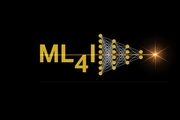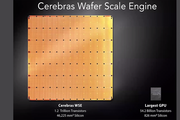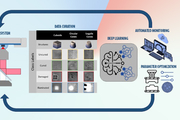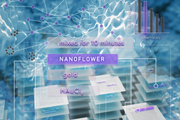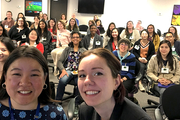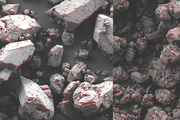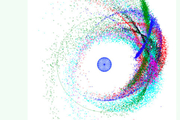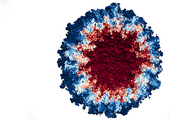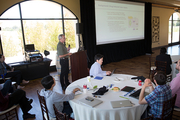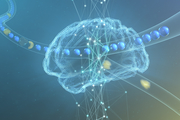Did you know we have a monthly newsletter? View past volumes and subscribe.
Lab offers forum on machine learning for industry
April 22, 2021 -
LLNL is looking for participants and attendees from industry, research institutions and academia for the first-ever Machine Learning for Industry Forum (ML4I), a three-day virtual event starting Aug. 10. The event is sponsored by LLNL’s High Performance Computing Innovation Center and the Data Science Institute. The deadline for submitting presentations or industry use cases is June 30. The...
Lab event encourages growth of women in data science
March 17, 2021 -
Coinciding with International Women’s Day on March 8, LLNL’s 4th Women in Data Science (WiDS) regional event brought women together to discuss successes, opportunities and challenges of being female in a mostly male field. The Lab’s first-ever virtual WiDS gathering attracted dozens of LLNL data scientists as well as some from outside the Lab, and featured speakers, a career panel and...
What put LLNL at the center of U.S. supercomputing in 2020?
Nov. 12, 2020 -
The HPC world is waiting for the next series of transitions to far larger machines with exascale capabilities. By this time next year, the bi-annual ranking of the Top500 most powerful systems will be refreshed at the top as Frontier, El Capitan, Aurora, and other DOE systems come online. While LLNL was already planning around AI acceleration for its cognitive simulation aims and had a number...
AI gets a boost via LLNL, SambaNova collaboration
Oct. 20, 2020 -
LLNL has installed a state-of-the-art artificial intelligence (AI) accelerator from SambaNova Systems, the National Nuclear Security Administration (NNSA) announced today, allowing researchers to more effectively combine AI and machine learning (ML) with complex scientific workloads. LLNL has begun integrating the new AI hardware, SambaNova Systems DataScale™, into the NNSA’s Corona...
LLNL, ANL and GSK provide early glimpse into Cerebras AI system performance
Oct. 13, 2020 -
AI chip and systems startup Cerebras was one of many AI companies showcased at the AI Hardware Summit which concluded last week. Cerebras invited collaborators from LLNL, Argonne National Laboratory, and GlaxoSmithKline to talk about their early work on Cerebras machines and future plans. Livermore Computing's CTO Bronis de Supinski said, “We have this vision for performing cognitive...
Machine learning speeds up and enhances physics calculations
Oct. 1, 2020 -
Interpreting data from NIF’s cutting-edge high energy density science experiments relies on physics calculations that are so complex they can challenge LLNL supercomputers, which stand among the best in the world. A collaboration between LLNL and French researchers found a novel way to incorporate machine learning and neural networks to significantly speed up inertial confinement fusion...
Machine learning model may perfect 3D nanoprinting
July 29, 2020 -
Two-photon lithography (TPL)—a widely used 3D nanoprinting technique that uses laser light to create 3D objects—has shown promise in research applications but has yet to achieve widespread industry acceptance due to limitations on large-scale part production and time-intensive setup. LLNL scientists and collaborators turned to machine learning to address two key barriers to industrialization...
Lockdown doesn’t hinder annual Data Science Challenge
June 26, 2020 -
Due to the COVID-19 pandemic and shelter-in-place restrictions, this year’s Data Science Challenge with the University of California, Merced was an all-virtual offering. The two-week challenge involved 21 UC Merced students who worked from their homes through video conferencing and chat programs to develop machine learning models capable of differentiating potentially explosive materials from...
DL-based surrogate models outperform simulators and could hasten scientific discoveries
June 17, 2020 -
Surrogate models supported by neural networks can perform as well, and in some ways better, than computationally expensive simulators and could lead to new insights in complicated physics problems such as inertial confinement fusion (ICF), LLNL scientists reported. Read more at LLNL News.
AI identifies change in microstructure in aging materials
May 26, 2020 -
LLNL scientists have taken a step forward in the design of future materials with improved performance by analyzing its microstructure using AI. The work recently appeared online in the journal Computational Materials Science. Read more at LLNL News.
AI hardware for future HPC systems (VIDEO)
May 20, 2020 -
This interview with Brian Spears, who leads cognitive simulations at LLNL, covers the current state of evaluation of AI chips and how those will mesh with existing and future HPC systems. Watch on YouTube.
Building knowledge and insights using machine learning of scientific articles
May 5, 2020 -
Nanomaterials are widely used at LLNL and in industry for many applications from catalysis to optics to additive manufacturing. The combination of nanomaterials’ shape, size, and composition can impart unique optical, electrical, mechanical, or catalytic properties needed for a specific application. However, synthesizing a specific nanomaterial and scaling up its production is often...
Lab promotes diversity, tech at Women in Data Science regional event
April 3, 2020 -
For the third consecutive year, Lawrence Livermore National Laboratory (LLNL) hosted a Women in Data Science (WiDS) regional event on March 2. Held at the HPC Innovation Center, the event drew dozens of attendees from LLNL, Sandia National Laboratories, local universities, and Bay Area commercial companies.
Livermore was one of over 200 regional events in 60 countries coordinated with the...
Local Women in Data Science conference showcases Lab research
April 3, 2020 -
For the third consecutive year, LLNL hosted a Women in Data Science (WiDS) regional event on March 2. The event drew dozens of attendees from LLNL, Sandia National Laboratories, local universities, and Bay Area commercial companies.
Livermore was one of over 200 regional events in 60 countries coordinated with the main WiDS conference at Stanford University. According to the WiDS website...
Machine learning accelerates high-performance materials development
Feb. 13, 2020 -
Lawrence Livermore National Laboratory (LLNL) and its partners rely on timely development and deployment of diverse materials to support a variety of national security missions. However, materials development and deployment can take many years from initial discovery of a new material to deployment at scale. Now, an interdisciplinary team of LLNL researchers from the Physical and Life Sciences...
Big data illuminates the physical sciences
Nov. 6, 2019 -
Livermore teams are applying innovative data analysis and interpretation techniques to advance fundamental science research. This article describes projects in astrophysics and materials science. Read more at Science & Technology Review.
Successful simulation and visualization coupling proves the power of Sierra
Oct. 22, 2019 -
As the first National Nuclear Security Administration (NNSA) production supercomputer backed by GPU- (graphics processing unit) accelerated architecture, Sierra’s acquisition required a fundamental shift in how scientists at Lawrence Livermore National Laboratory (LLNL) program their codes to take advantage of the GPUs.
The majority of Sierra’s computational power—95 percent of its 125...
Collaboration drives data science workshop
Sept. 12, 2019 -
Lawrence Livermore National Laboratory’s (LLNL’s) Data Science Institute (DSI) hosted its second annual workshop on July 23–24, 2019. Co-sponsored by the University of California (UC) system, the event drew more than 200 participants to Garré Winery in Livermore. A common theme ran throughout both days: Collaboration is always welcome.
Indeed, feedback from last year’s workshop inspired a...
Researchers explore machine learning to automate sorting of microcapsules in real-time
April 16, 2019 -
Micro-Encapsulated CO2 Sorbents (MECS) — tiny, reusable capsules full of a sodium carbonate solution that can absorb carbon dioxide from the air — are a promising technology for capturing carbon from the atmosphere. To create the caviar-like objects, scientists run three fluids through a series of microfluidic components to create drops that turn into capsules when exposed to ultraviolet...
Making connections, career development highlight Women in Data Science regional event
March 11, 2019 -
For the second straight year, the HPC Innovation Center at LLNL played host to a Women in Data Science WiDS) regional event on March 4, drawing in dozens of attendees from LLNL, local universities and other Bay Area national laboratories. Livermore was one of more than 150 regional events held at sites across the globe in conjunction with the Global WiDS conference at Stanford University. Rea...

